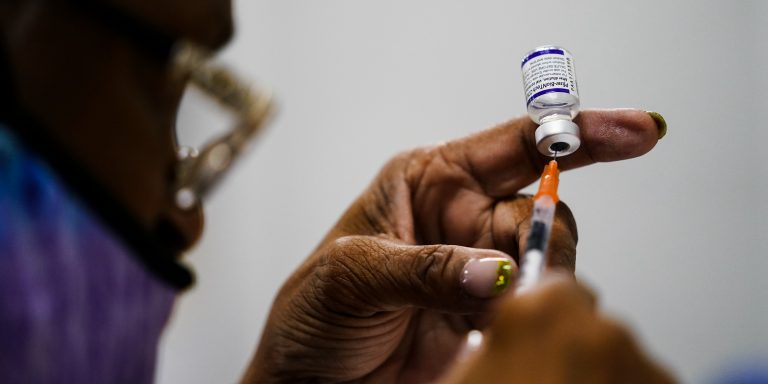INTELBRIEF
December 20, 2021
IntelBrief: Concern Growing Over Violent Extremism Related to COVID-19 Lockdowns and Vaccines

Bottom Line Up Front
- The Omicron variant of the coronavirus is already forcing vaccine mandates and new waves of lockdowns in countries worldwide, fueling violent protests from anti-vaxxers and anti-government extremists.
- The boundaries between far-right extremists, anti-vaxxers, and COVID-19 conspiracy theorists are continuing to erode.
- The pandemic has brought together seemingly disparate groups, constituencies, and online communities to form a toxic miasma of anti-government sentiment, far-right extremism, and conspiracy-mongering.
- The pandemic has been an ideological godsend for anti-government and anti-authority extremists, who are now more relevant than any point in the last two decades.
Just last week, German special police officers carried out raids against a number of suspected extremists in Dresden, disrupting what has been described as an imminent plot to assassinate local politicians. The violent extremists were motivated by their opposition to COVID-19 restrictions and were planning to murder Saxony State Premier Michael Kretschmer, as well as other politicians. The recently discovered Omicron variant of the coronavirus is already forcing vaccine mandates and new waves of lockdowns in countries worldwide, fueling violent protests from anti-vaxxers and anti-government extremists. In Italy, anti-government extremists and far-right gangs have joined with anti-vaxxers to stage demonstrations and protests, some of which have turned violent. The Netherlands has also experienced an uptick in violence related to anti-vaxxers and others opposed to more stringent COVID-19 measures, with rioters attacking police in Rotterdam and The Hague at various points over the past several months.
The international community, especially Western countries, should expect to see more of this type of extremism, particularly the focus on targeting politicians. Moreover, the boundaries between far-right extremists, anti-vaxxers, and COVID-19 conspiracy theorists are continuing to erode. Most governments are totally unprepared for the byproduct of these interactions from a counterterrorism perspective. There should be closer partnerships forged between public health officials and the security services, given the overlap between health related mis- and disinformation, anti-government sentiment, and real world violence.
Throughout Europe, a broader “anti-COVID” or “anti-Corona” ecosystem has developed online, evidenced by Telegram discussions where anti-government rhetoric is mixed with threats of violence and calls to action as a response to the possibility of mandatory vaccinations. In the United States, the vitriol directed against Dr. Anthony Fauci, the Chief Medical Advisor to U.S. President Joseph Biden, has made him and his family the target of incessant death threats, prompting the need for around-the-clock personal security. Fauci has been demonized by a rabid group of extremists that believe in wild conspiracies related to Fauci’s role in helping to combat the pandemic.
Russian disinformation campaigns have seized on the anti-vaxxer narrative and promoted conspiracies in an effort to destabilize Western democracies. In countries like Bulgaria and Romania, where vaccination rates are low, many see the hand of Moscow in amplifying various COVID-19 related conspiracies. While the counterterrorism community is still debating the definition of terrorism and whether violence related to anti-vaxxers and COVID-19 deniers qualifies, these networks are solidifying, evolving, and planning for real-world acts of violence, which is both politically-motivated and ideological in nature. The pandemic has made for strange bedfellows, bringing together seemingly disparate groups, constituencies, and online communities to form a toxic miasma of anti-government sentiment, far-right extremism, and conspiracy-mongering. In many Western countries, including the United States, this movement has received political top cover from both the fringes and the mainstream.
The pandemic, government responses and public health measures, and now controversies over the vaccine have combined to produce a worldwide movement. There is not necessarily one single point of entry or center of gravity, but instead a worldwide network of individuals willing to use violence to advance their ideology. When the pandemic winds down, many of these people could move on, but others will not, and will likely engage in violence or forms of extremism that governments are unprepared to deal with. The pandemic has been an ideological godsend for anti-government and anti-authority extremists, who are now more relevant than any point in last two decades. In an odd twist, anti-government extremism has become trendy, and the ideology permeates class, race, and status barriers in many cases. Even if only a small percentage of individuals are willing to engage in violence, the ecosystem itself is expanding, providing rhetorical encouragement to the most hardcore elements within the movement.